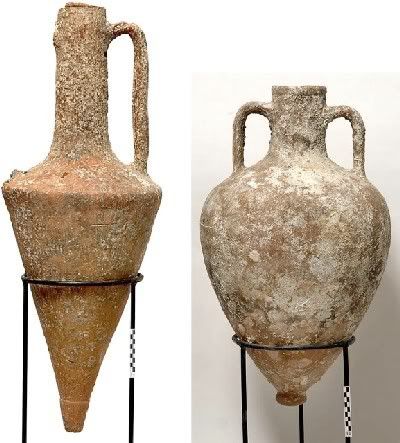Studying Ancient Economies with…DNA?
On Friday, Hugh wrote about scientists who used DNA analyses to trace sawfly evolution. New research from relics of an ancient Greek shipwreck shows that traces of DNA might also help us learn more about ancient trading economies.
In 2005, researchers from the Woods Hole Oceanographic Institute and the Hellenic Centre for Marine Research drudged up a 2,400-year-old shipwreck near the Greek island of Chios. They gleaned from the wreckage, among other booty, two amphoras (above). As published October 10 in the online version of the Journal of Archaeological Science, scrapings from the inside of these ceramic jugs held genetic traces of olive oil, oregano and mastic, a shrub used in ancient times to preserve wine. (Apparently Mediterranean culture hasn't changed much over two millennia...)
As the first study to show that ancient DNA can be extracted from underwater artifacts, the research team writes that the discovery "opens a new field of molecular archaeology."

(Courtesy of the WHOI/Hellenic Ministry of Culture, Ephorate of Underwater Antiquities)